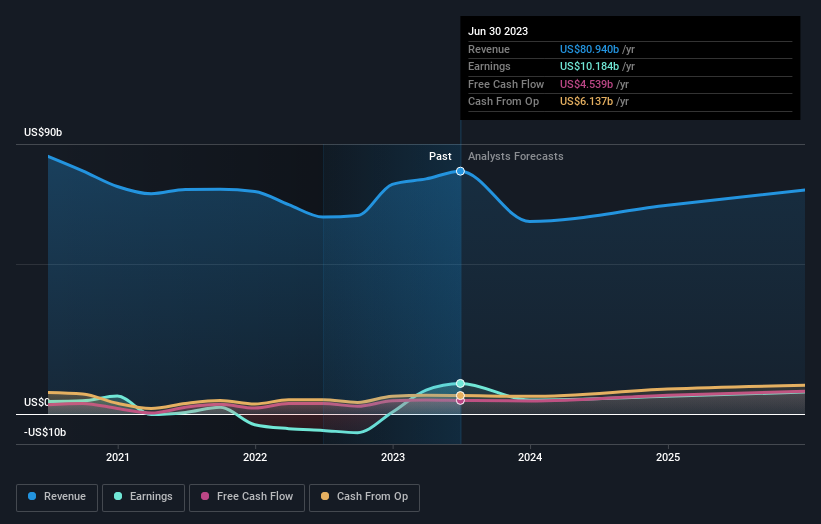At US$113, Is General Electric Company (NYSE:GE) Worth Looking At Closely?
Let's talk about the popular General Electric Company (NYSE:GE). The company's shares saw a double-digit share price rise of over 10% in the past couple of months on the NYSE. As a large-cap stock with high coverage by analysts, you could assume any recent changes in the company’s outlook is already priced into the stock. However, could the stock still be trading at a relatively cheap price? Let’s examine General Electric’s valuation and outlook in more detail to determine if there’s still a bargain opportunity.
View our latest analysis for General Electric
What's The Opportunity In General Electric?
According to my valuation model, General Electric seems to be fairly priced at around 13% below my intrinsic value, which means if you buy General Electric today, you’d be paying a fair price for it. And if you believe the company’s true value is $129.30, then there isn’t much room for the share price grow beyond what it’s currently trading. Although, there may be an opportunity to buy in the future. This is because General Electric’s beta (a measure of share price volatility) is high, meaning its price movements will be exaggerated relative to the rest of the market. If the market is bearish, the company’s shares will likely fall by more than the rest of the market, providing a prime buying opportunity.
What kind of growth will General Electric generate?
Future outlook is an important aspect when you’re looking at buying a stock, especially if you are an investor looking for growth in your portfolio. Although value investors would argue that it’s the intrinsic value relative to the price that matter the most, a more compelling investment thesis would be high growth potential at a cheap price. However, with an extremely negative double-digit change in profit expected over the next couple of years, near-term growth is certainly not a driver of a buy decision. It seems like high uncertainty is on the cards for General Electric, at least in the near future.
What This Means For You
Are you a shareholder? GE seems fairly priced right now, but given the uncertainty from negative returns in the future, this could be the right time to reduce the risk in your portfolio. Is your current exposure to the stock optimal for your total portfolio? And is the opportunity cost of holding a negative-outlook stock too high? Before you make a decision on the stock, take a look at whether its fundamentals have changed.
Are you a potential investor? If you’ve been keeping an eye on GE for a while, now may not be the most advantageous time to buy, given it is trading around its fair value. The stock appears to be trading at fair value, which means there’s less benefit from mispricing. Furthermore, the negative growth outlook increases the risk of holding the stock. However, there are also other important factors we haven’t considered today, which can help gel your views on GE should the price fluctuate below its true value.
With this in mind, we wouldn't consider investing in a stock unless we had a thorough understanding of the risks. For instance, we've identified 3 warning signs for General Electric (1 makes us a bit uncomfortable) you should be familiar with.
If you are no longer interested in General Electric, you can use our free platform to see our list of over 50 other stocks with a high growth potential.
Have feedback on this article? Concerned about the content? Get in touch with us directly. Alternatively, email editorial-team (at) simplywallst.com.
This article by Simply Wall St is general in nature. We provide commentary based on historical data and analyst forecasts only using an unbiased methodology and our articles are not intended to be financial advice. It does not constitute a recommendation to buy or sell any stock, and does not take account of your objectives, or your financial situation. We aim to bring you long-term focused analysis driven by fundamental data. Note that our analysis may not factor in the latest price-sensitive company announcements or qualitative material. Simply Wall St has no position in any stocks mentioned.

 Yahoo News
Yahoo News 

